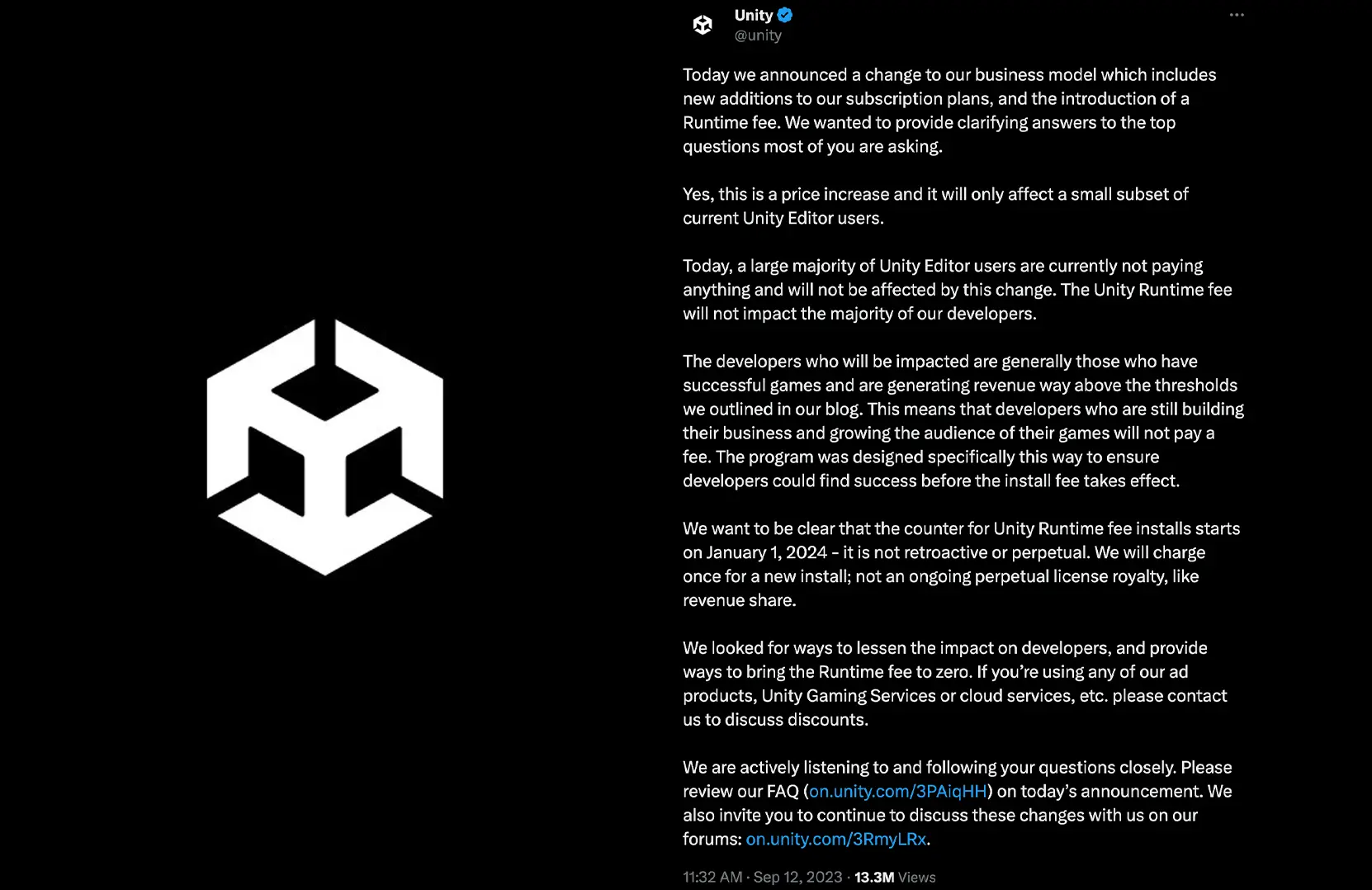The popular video game engine Unity caused an uproar when it announced a change to their pricing model that could have developers looking at other options.
If you have ever played video games, chances are you have played one created using the Unity Engine. Unity, “the world’s leading platform for creating and operating interactive, real-time 3D content”, rose to popularity with indie developers because of its ease of use and relatively low cost. Over time, Unity became a tried and true game engine in the industry, with large titles such as Cuphead, Among Us, and Pokemon Go, all created using the Unity Engine.
Last Tuesday, the popular game engine creator announced changes to their pricing model that sent the entire video game industry into an uproar by introducing what they’re calling the “Unity Runtime Fee.” This change will cause developers to be charged a fee per install of their games once they reach a certain threshold. The company will charge $0.20 per install once the developer reaches US$200,00 in sales, or 200,000 installs (for Unity Personal and Unity Plus). This change will take effect on Jan. 1, 2024 and will apply to all new games being released, as well as any game previously released using the Unity engine meeting the specified thresholds.
According to Unity, only 10 per cent of its developers are expected to be affected by the change, while the other 90 per cent will likely never have to pay a single fee. But, for many of the developers that have already found success using the engine, bankruptcy seems to be the main point of concern, as they don’t believe they have the money to cover the fees on new installs of their most popular games.
Developers who create games for download on subscription-based services, such as Xbox Game Pass, however, won’t have to worry about the new install fees. Instead, Unity will be charging companies, like Microsoft, who run the subscription service for the downloads.
While there has yet to be any response from companies such as Microsoft about the changes, Unity’s announcement was met with backlash from many developers, with some threatening to delete their games built with the Unity engine off of all online platforms. Cult of the Lamb is one such game that could be permanently deleted come January. Other developers, like Red Hook, the studio behind Darkest Dungeon, have threatened to look for new game engines if Unity does not retract their changes.
It appears that Unity has in fact been listening to people’s responses. This past Sunday, they took to X, formerly known as Twitter, to state that they will be making changes to their pricing model based on the responses of the video game industry. What those changes are have yet to be announced.





0 Comments